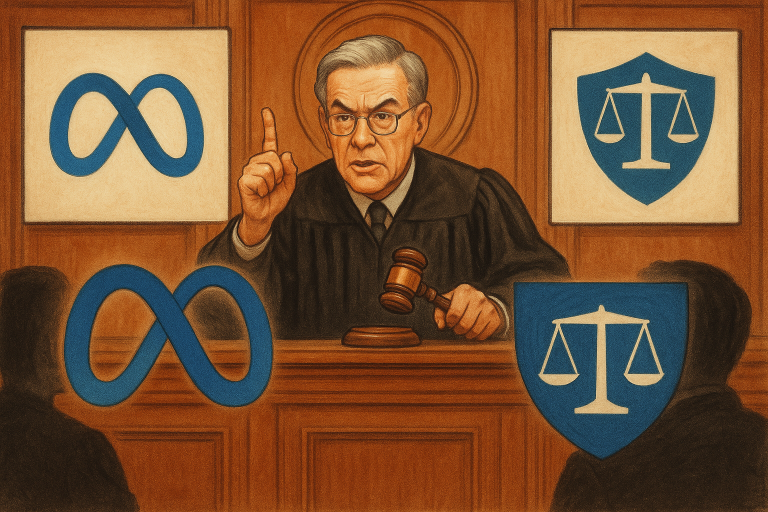Meta has secured a major legal victory after a US federal judge dismissed the Federal Trade Commission’s high-profile antitrust case, ending a years-long effort by regulators to unwind the company’s acquisitions of Instagram and WhatsApp.
The ruling marks one of the most significant setbacks for US antitrust enforcement in the tech sector and underscores how rapidly shifting market dynamics have reshaped the competitive landscape for social networking platforms.
Court rules FTC failed to prove current monopoly power
In a memorandum opinion released Tuesday, Judge James Boasberg of the US District Court in Washington, DC, concluded that the FTC did not demonstrate that Meta currently holds monopoly power in social networking.
“Whether or not Meta enjoyed monopoly power in the past, though, the agency must show that it continues to hold such power now,” Boasberg said.
He ruled that the FTC had not met that burden, leading to a judgment in Meta’s favor.
The case, originally filed five years ago, centered on Meta’s 2012 purchase of Instagram and its 2014 acquisition of WhatsApp.
Regulators argued that the deals crushed competition and solidified Meta’s dominance.
However, the judge focused on present-day market conditions, emphasizing that the technology sector has evolved significantly since the period when Facebook dominated photo sharing and text-based social networking.
Boasberg had dismissed the case once before, in 2021, citing insufficient evidence of market power.
The FTC later filed an amended complaint with expanded data on user metrics and market behavior among competing platforms such as Snapchat, Google+ and Myspace.
In 2022, Boasberg allowed the revised case to move forward, but the latest ruling ultimately concluded that the agency still lacked evidence of a current legal violation.
Competition from TikTok and YouTube undercuts monopoly claims
A central element of the court’s decision was how consumer behavior has shifted toward video-first platforms, fundamentally redefining the social media sector.
Boasberg pointed to data showing that users now spend significant time on TikTok and YouTube, services that deliver features similar to Meta’s apps and compete directly for attention, advertising, and engagement.
“People treat TikTok and YouTube as substitutes for Facebook and Instagram, and the amount of competitive overlap is economically important,” he wrote.
The FTC, he added, offered “no empirical evidence of substitution.”
The judge also cited internal documents and testimony showing that TikTok and YouTube viewed Meta as a competitive threat, reinforcing the notion of a dynamic, multi-player market rather than one dominated by a single firm.
Meta applauds ruling as FTC signals it may pursue options
Meta called the decision a recognition of the competitive pressures it faces.
“The Court’s decision today recognizes that Meta faces fierce competition,” said Jennifer Newstead, the company’s chief legal officer.
She added that Meta’s products continue to support American innovation and economic growth.
The FTC expressed disappointment, saying it was “reviewing all our options.”
The agency noted concerns about Boasberg, who is facing impeachment articles, but did not indicate whether it would appeal.
The ruling arrives shortly after Google avoided major structural remedies in its own antitrust case, highlighting the challenges regulators face in reshaping the power of large tech platforms under existing US law.
The post Meta prevails in landmark antitrust case as court rejects FTC monopoly claims appeared first on Invezz

